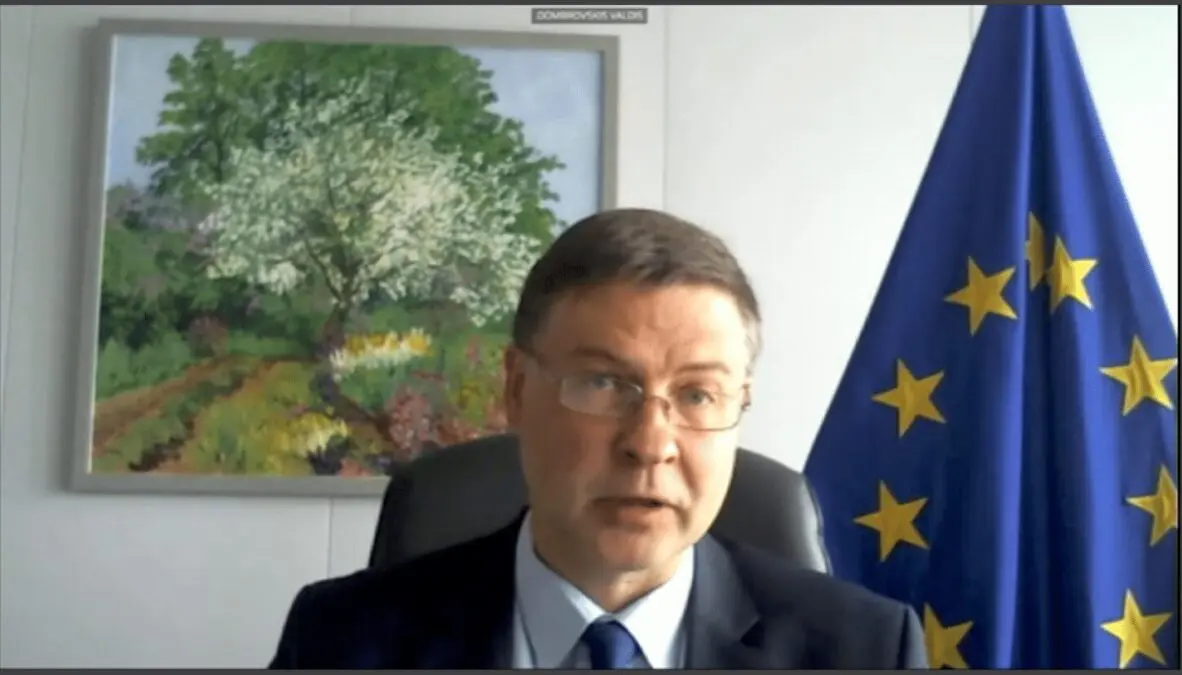The economic situation appears a little less benign in the very short term: due to the spread of Omicron, the bottlenecks in our supply chains, the rise in energy prices.
So uncertainty is very high, as it has been throughout the pandemic. And we must remain vigilant to avoid seeing the recovery blown off course, as we still face several downside risks and headwinds.
But to be clear, in this uncertain environment, we continue to be positive on the medium-term outlook for our economy. Readings from survey indicators remain well above their long-term averages, although they point to a loss of momentum in the last weeks.
Despite these negative developments, our Winter Forecast which I will present on Thursday will show that in 2022 the EU economy will continue recovering from the COVID crisis. This is mainly thanks to the successful vaccination campaign and the persistent support from monetary and fiscal policies.
In this context my view is that a premature withdrawal of policy support could undermine the strength of the economic expansion.
So we should pursue policies that effectively underpin the recovery and increase potential growth. This means gradually shifting support towards measures that lay the foundations for a successful green and digital transition and for more inclusive growth.
Our coordinated economic policy response to the pandemic over the past two years has been strong and successful. Just consider December’s record-low unemployment figures published by Eurostat last week. Of course we know that we have still a lot of challenges in the labour market, but the unemployment rate is very important.
Now we must navigate a new, altogether more complex phase, hopefully with the same coordination and success, to promote sustainable growth and sustainable finances in the future.
On the fiscal situation in the EU and our assessment of the 2022 Draft Budgetary Plans, based on the autumn forecast, the aggregate budget deficit in the euro area should decline markedly from 7.1% of GDP last year to 3.9% this year and 2.4% next year.
At the same time, public debt is projected to have peaked at 100% in the euro area in 2021 and to decline quite slowly to 97% by 2023.
Reducing high debts in a growth-friendly manner is not necessarily an oxymoron, but it is a challenge for our policies and fiscal rules in the years to come. And the role and the support of the European Parliament is crucial also from this point of view.
On the Opinions on the draft budgetary plans, only a few remarks.
First, all Member States plan to preserve nationally financed investment. Member States will use the Recovery and Resilience Facility to finance additional investment to support the recovery.
And alongside these welcome developments, we noted that, in some Member States, a sizeable share of the contribution to the overall supportive fiscal stance was planned to be provided by increases in nationally financed current expenditure. And we said a word of caution on this attitude.
Overall, the fiscal stance is projected to be expansionary over 2020-2022. And, crucially, the public investment-to-GDP ratio this year is projected to be higher than pre-crisis. This contrasts with a seven-year declining trend of this investment-to-GDP ratio in the wake of the Great Financial Crisis.
This good news reflects not only the combined effect of higher nationally financed investment, but also investments financed by RRF grants. So the effective implementation of investments and reforms of the Recovery and Resilience Plans will be one of the key factors for a successful recovery of our economies.
We need to continue to coordinate policies, to learn from this crisis, and to work with unprecedented tools if need be, but always with a strong political will.
Thank you.







